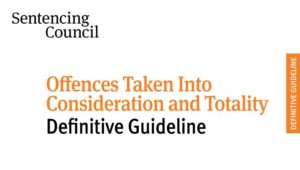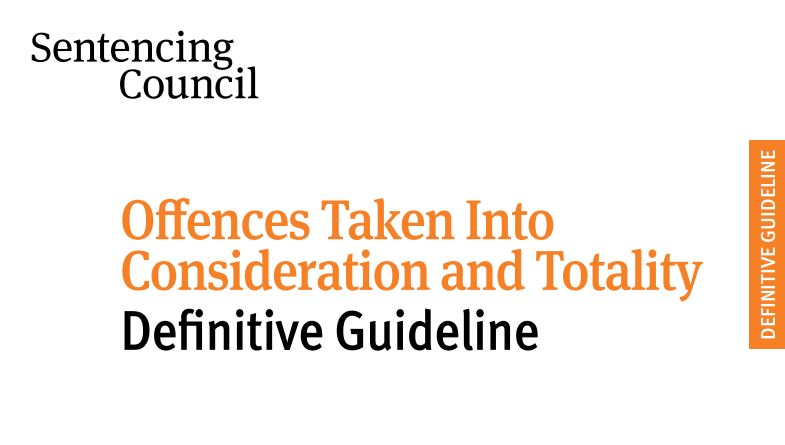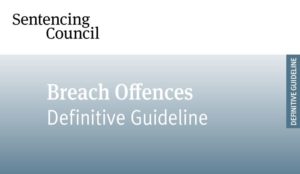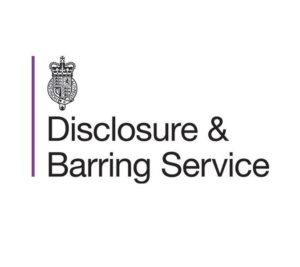Monthly Archives: June 2018
What are offences taken into consideration or ‘TICs’?
These are offences taken into consideration at the time of sentencing. These ‘TICs’ are not offences that are charged.
When will a person be asked about them?
Where someone has pleaded guilty to an offence or offences, or is expected to do so, or are due to be sentenced after trial, a person can admit other matters so that they can be offences taken into consideration at that sentencing hearing.
As well as a person volunteering offences, the police may also approach them to ask if they want to accept any TICs. It is crucial that free and independent legal advice is obtained at this stage as there are consequences and risks to having offences taken into consideration on sentence.
What happens if I want to admit TICs?
You will be spoken to under caution. If you do admit other offences and the police and prosecution agree, a schedule of the offences will  be prepared and placed before the court.
be prepared and placed before the court.
It is then for the court to decide whether or not to take them into account when you are sentenced.
The positive side of such a process is that the court will consider the fact that you have assisted the police and shown a genuine desire to “wipe the slate clean”. This will support any suggestion of genuine remorse for any offending. More can be found about such mitigation here.
Additionally, the police will no longer be searching for the person responsible for these offences so there will be no risk of future arrests and sentence.
Offences taken into consideration will make a difference to your sentence. Any sentence will be longer as a result of the TICs, Any increase, however, may not be as much as if you were sentenced separately for those offences.
The negative consequences of TICs
On the negative side, the acceptance of offences taken into consideration may result in a greatly increased sentence. They will be treated as an aggravating feature of your offending. This will be especially true if there is a large number of TICs.
The total sentence imposed has to reflect all of the offending behaviour.
A defendant can also be ordered to pay compensation in relation to TICs.
Finally, it may be that the offences might never have been linked to any suspect. As a result, a defendant may be admitting more than could ever be proved. As a result there will be a trade off between peace of mind as against looking over your shoulder wondering whether your past will catch up with you.
Wiping the slate clean
If you wish to wipe the slate clean it is important to ensure that all outstanding offences are admitted, otherwise you may not receive any discount if a future prosecution is brought.
In the recent case of Murray [2018] EWCA Crim 1252 the court observed (citing an earlier case of McLean [2017] EWCA Crim 170):
“It seems to us however that this appellant must have made a conscious choice not to disclose the July 2014 matter in the hope that it would go undetected. In those circumstances he cannot now claim to be sentenced as if both matters should have been dealt with together in January 2015. To permit that to happen at this stage would be unjust to the public interest in giving the appellant an undeserved, uncovenanted bonus. This case therefore is a salutary illustration of the benefits which can accrue to offenders from making voluntary admissions of additional offending and the risks that they run if they choose not to do so.”
What sort of offences can be TIC’d?
Similar offending is likely to be accepted as a TIC. An offence is unlikely to be accepted as a TIC if –
- it is an admission to an offence more serious than the one you have pleaded guilty to;
- it is an offence that would attract disqualification or penalty points on conviction;
- if it is an offence committed in breach of an earlier sentence;
- where it is an offence completely dissimilar to the one charged; or
- where it is a specified offence when the charged offence is not.
If further offences are admitted will they definitely be offences taken into consideration?
Not necessarily.
Admissions in the circumstances above may lead to further criminal charges being brought against a defendant. This is why it is important to seek free and independent legal advice.
How can we help in these circumstances?
Any advice as to whether to accept TICs or not is likely to be dependent on both your personal circumstances and the offences involved.
If we are already representing you then we will be able to take your instructions and provide you with advice on the likely effect of admitting further offences to be taken into consideration.
Where we do not currently act for you and you want our expert advice then please contact your nearest office. Our independent legal advice in police interview will always be free of charge to you under the criminal legal aid scheme.
Monthly Archives: June 2018
How many times have you said something like ‘I’m going to kill you’? Most of the time this will simply be something said in the heat of the moment rather than genuine threats to kill.
If, however, you make such a threat and intend that another would fear it would be carried out then you will be committing an offence of making threats to kill.
The offence is under section 16 of the Offences Against the Person Act 1861. Even though the legislation is very old it is still a commonly used charge. The key part of the offence is that a person intend another to fear that the threat would be carried out.
Is there a defence to threats to kill?
If you make the threat in self-defence or in the prevention of crime you may have a defence of lawful excuse. Whether any threat made was reasonable in the circumstances will be a matter for the magistrates or jury.
Equally, a comment made in temper or jest, with no intent to make anyone fear it would be carried out, would not be an offence.
Evidence of previous history between the parties is admissible as tending to prove that the defendant intended his words to be taken seriously (Williams (C.I.), 84 Cr.App.R. 299, CA.)
What if the threats to kill are made to someone else?
You do not have to make the threat directly to the person, it may be through a third party.
For example, a man in prison made threats to a prison officer that he was going to kill his ex-girlfriend, he was convicted and received five years imprisonment. The threats were taken especially seriously as he had a previous conviction for the manslaughter of his wife.
What sentence can I expect?
The offence can encompass a wide range of offending so in sentencing the court will look at a variety of factors. These can include the following examples:
- was there a weapon?
- was it a threat in the heat of the moment?
- the impact on the victim
- repeated threats or a single calculated threat?
An example is a case involving threats to kill made to an arresting officer. The offender knew detail about the officer’s home life which added weight to the threats. As a result he was sentenced to 2 years imprisonment.
When a weapon is present when threats are being made the offence is much more serious. An offender who threatened his former partner with a sword received five years imprisonment.
Sentences imposed can range from a community order for an offence that constitutes one threat made in the heat of the moment, through to imprisonment up to a maximum of 10 years for repeated threats or the presence of a weapon.
How can we help defend in a case of threats to kill?
As you can see, making threats to kill is a serious allegations and the law relating to defences can be complex.
As a result, if you are arrested or know that the police wish to speak to you about an offence then make sure you insist on your right to free and independent legal advice.
The advantages of such early advice legal advice can be found here.
If you have already been interviewed or face court proceedings we can still make a real difference to the outcome of your case. Legal aid may well be available to fund your defence at court.
We have offices across the East Midlands. You can find your most convenient office here. Alternatively you can contact us using the form below.
Contact
Monthly Archives: June 2018
Laws that criminalise unlawful violence date back to 1861 and are used every day in criminal courts to support prosecutions. Do they criminalise parental chastisement?
Despite what might appear to be an obvious legal position, the question is often asked as to whether, despite those laws, it is permissible to ‘smack’ a child.
The simple answer is that it is lawful to chastise a child by smacking, although the extent of that provision needs explaining in an attempt to make the legal position on parental chastisement clearer.
Perhaps surprising to many is the fact that the UK is only one of two places in the European Union that permits this state of affairs. The other country is the Czech Republic.
Earlier this year the devolved government in Wales launched a consultation, with proposals to outlaw all smacking of children. The consultation closed on 2 April 2018 and a response is awaited.
The minister for children and social care said:
“Our knowledge of what children need to grow and thrive has developed considerably over the last 20 years. We now know that physical punishment can have negative long-term impacts on a child’s life chances and we also know it is an ineffective punishment.
While physically punishing children was accepted as normal practice in previous generations, we know that it is increasingly being seen as less acceptable and parents feel less comfortable.
We want parents in Wales to be confident in managing their children’s behaviour without feeling they must resort to physical punishment. If there is any potential risk of harm to a child, then it is our obligation as a government to take action. Legislation was introduced many years ago to stop physical punishment in schools and childcare settings – now is the time to ensure it is no longer acceptable anywhere.”
The move in Wales follows similar developments in Scotland last October about parental chastisement, which resulted in the children’s commissioners of Scotland, England, Wales and Northern Ireland calling for a ban on smacking children.
Attitudes to parenting practices have also changed. While physically punishing children was accepted as normal practice in previous generations, research shows parents today are increasingly using positive approaches which are proven to be more effective, while feeling less comfortable about using physical punishment. In 1998, for example, 88% of British adults agreed that “it is sometimes necessary to smack a naughty child” while in 2015 only 24% of parents in Wales supported this statement.
Despite this shift in attitude, at the moment there are no plans to change the law as it applies in England.
What does the law allow in relation to parental chastisement?
The law allows an assault on a child provided that it constitutes ‘reasonable punishment’.
Section 58 Children Act 2004 states however that this defence cannot apply to the more serious charges of violence starting with assault occasioning actual bodily harm, and those more serious.
What is ‘reasonable punishment’?
The concept of ‘reasonable punishment’ has its origins in Victorian times. The case that established the legally accepted definition was R v Hopley (1860).
In this case, a boy was beaten by a schoolmaster with the permission of the child’s father. The beating led to the death of the child.
During the trial, the presiding judge, Chief Justice Cockburn, stated that:
“A parent or a schoolmaster, who for this purpose represents the parent and has the parental authority delegated to him, may for the purpose of correcting what is evil in the child inflict moderate and reasonable corporal punishment, always, however, with this condition, that it is moderate and reasonable.”
This case established in law reasonable punishment as a defence for those parents, carers or other responsible adults – such as teachers – who were charged with the criminal offence of assault on children.
The use of corporal punishment was commonplace in schools until the 1980s. From 1986, however, the UK Parliament increasingly restricted the use of corporal punishment, prohibiting it in all state maintained schools in 1987 and in independent schools in 1999. Its use was ended in children’s homes in 2001, Local Authority foster care in 2002 and in childcare provision in 2007.
The question of whether the punishment is ‘moderate and reasonable’ will be for a court to decide on the facts of any individual case.
It is fair to say, however, that any punishment that results in more than transient or trifling injury (leaves a mark or bruise for example), is likely to fall outside of this defence. It is therefore important than parents find other mechanisms to deal with children who might at times be very challenging.
How we can assist in allegations of unlawful parental chastisement
Such allegations will always be treated seriously and the law is complicated. As a result, if you are arrested or know that the police wish to speak to you about an offence then make sure you insist on your right to free and independent legal advice.
The advantages of such early advice legal advice can be found here.
If you have already been interviewed or face court proceedings we can still make a real difference to the outcome of your case. Legal aid may well be available to fund your defence at court.
We have offices across the East Midlands. You can find your most convenient office here. Alternatively you can contact us using the form below.

Monthly Archives: June 2018
Clients of Chesterfield crime solicitor Denney Lau have had a successful week before Chesterfield Magistrates’ Court.
Successful exceptional hardship argument
Denney’s client was guilty of failing to notify the details of a driver when required to do so by the police. Unfortunately he already had ten penalty points on his driving licence. As a result, the minimum of six penalty points that would be imposed for the new offence would make him liable for a disqualification for a minimum of six months under the totting up procedure.
To avoid this, Denney successfully argued before the Chesterfield Magistrates’ Court that his client would suffer exceptional hardship if he was to be disqualified. Although any disqualification is likely to lead to hardship, in this case our client would not only lose his employment as a driver but also his home. He would be unable to continue with the additional responsibilities that he had for his grandchildren.
Our client was relived that he was able to keep his driving licence although it now had sixteen penalty points upon it.
Not guilty of driving whilst disqualified
Two days later, Denney represented another client who was standing trial at Chesterfield Magistrates’ Court in relation to an allegation of driving whilst disqualified.
A police officer had intelligence suggesting that our client had been using a particular vehicle whilst disqualified and therefore without insurance. The police saw the vehicle. There was a pursuit and when the vehicle came to a halt three people ran away from the vehicle.
The officer claimed that he was sure that the driver of the vehicle was Denney’s client. This was disputed at trial.
Challenging police evidence can often be difficult. It is the case that Magistrates are often more persuaded by the evidence of an officer than by that of a defendant. Denney conducted his own research into the credibility of the officer in question. He found that the officer had appeared before the police disciplinary panel for misconduct recently. That misconduct was that he had deliberately made a wrong entry onto the Police National Computer. As a result the officer had received a warning about his conduct.
In order to have this information before the court, Denney had to make a successful bad character application. Aside from cross-examining the officer about the disciplinary finding, Denney also asked him detailed questions about the difficult circumstances of the identification.
After considering the evidence in the case the magistrates found our client not guilty of the offences.
Denied shop theft allegation
Four days after that a different client stood trial at Chesterfield Magistrates’ Court in relation to an allegation of shop theft. In this case a store manager claimed that he had witnessed a theft, identified our client from CCTV and then given chase before our client left the scene in a vehicle.
Our client had, unfortunately, chosen not to take advantage of our free and independent advice in police interview. He had, however, stated that he did not recall being involved in such an incident.
In preparation for what could be a difficult trial Denney closely examined the CCTV footage. He discovered that the offender’s face could not be seen. As a result, this cast doubt on the identification made by the store manager.
In his closing speech, Denney argued that the Magistrates needed to examine closely the circumstances in which the identification was made. Mistakes can be made in recognition of close relatives and friends can sometimes made be made.
Again, having heard Denney’s argument and considered the evidence the court found his client not guilty.
Seek our representation before Chesterfield Magistrates’ Court

You can ensure that you are represented by Chesterfield crime solicitor Denney Lau by phoning 01246 387999 and making an appointment to see him. Contact him in advance of any police interview or court appearance and if he is available then he will be with you, or make arrangements for one of his experienced colleagues to attend instead.
Alternatively you can use the contact form below.
Contact
Monthly Archives: June 2018
On 7 June 2018 the Sentencing Council published new guidelines for judges and magistrates. These are to be used when offenders are being sentenced for breaching court orders.
The guidelines provide a clear approach. This mean that the way courts deal with such offenders will be tightened up. These are people who are breaching court orders by not complying with orders such as suspended sentence orders, community orders, restraining orders and sexual harm prevention orders.
It is the first time there have been comprehensive guidelines setting out a consistent approach for courts to use. They will help ensure that for offenders breaching court orders those sentencing will impose appropriate penalties according to the seriousness of the breach.
What breaches of court orders are covered by the guideline?
- Breach of a Community Order
- Breach of a Suspended Sentence Order
- Breach of Post Sentence Supervision
- Failing to Surrender to Bail
- Breach of a Protective Order (restraining and non-molestation orders)
- Breach of a Criminal Behaviour Order and Anti-Social Behaviour Order
- Breach of a Sexual Harm Prevention Order and Sexual Offence Prevention Order
- Failing to Comply with Notification Requirement
- Breach of Disqualification from acting as a director
- Breach of Disqualification from keeping an animal
When does the guideline on breaching court orders come in to force?
The guideline for breaching court orders will come into effect in courts on 1 October 2018.
Is the guideline a change in approach?
Courts are required to follow guidelines and these guidelines closely reflect legislation and define more clearly appropriate court responses to breaching court orders.
For example, in relation to suspended sentence orders, legislation states that they must be activated – i.e. the offender will be sent to prison – in the event of a breach unless it would be unjust to do so.
The guideline gives clearer guidance on this consideration. Offenders will now not get opportunities to avoid their sentence being activated. For activation to be considered to be unjust, there would need to be new and exceptional circumstances – not present at the time the order was imposed – that prevented them from complying with the order. This might involve for example the offender taking on caring for a disabled relative which greatly affects their ability to comply with an unpaid work requirement.
The guideline also covers breaching court orders imposed to prevent particular behaviour or protect individuals or groups from it. These include Sexual Harm Prevention Orders and Restraining Orders. The guidelines prompt courts to look at an offender’s motivation and intention in committing a breach to assess the seriousness of the breach. The guidelines also instruct courts to look at any harm caused, and for the first time in a guideline, the risk of harm being caused.
Including a focus on risk of harm for such breaches helps ensure appropriate sentences are imposed where a breach presents a serious risk of harm to the public. As a result no actual harm needs to have occurred. This could include for example a sex offender who fails to comply with notification requirements with the intention of evading detection in order to commit further offences.
Sentencing Council member Julian Goose said:
“Court orders are there to protect individuals and the wider public from particular types of offending or continuing criminal behaviour by offenders. Making sure that offenders comply with court orders is crucial in reinforcing public confidence in sentencing. Where offenders do not comply, the public have a right to expect that this is properly addressed by the courts. We are giving courts clear guidance on what action should be taken against those offenders who ignore court orders so that they are dealt with robustly and consistently.”
Will more people go to prison as a result?
The Sentencing Council conducts research to assess the impact of its guidelines on future sentencing practice. This is a difficult task and the findings are subject to many caveats. However, the following pattern emerges:
Protective orders:
‘In general, the sentencing ranges have been set with current sentencing practice in mind and therefore it is not anticipated that there will be any impact on prison and probation resources in the majority of cases. There are two exceptions which may lead to higher sentences for some breaches of a restraining/non- molestation order.’
Criminal Behaviour Order:
‘In general, the sentencing ranges have been set with current sentencing practice in mind and therefore it is not anticipated that there will be any impact on prison and probation resources in the majority of cases. The exception is for the most serious breach cases that fall in categories A1, A2 and B1, where there has been an extension to the category ranges, and also at the bottom of the distribution where there may actually be a reduction in sentence severity.’
Breach of notification requirements:
‘A review of transcripts of cases has confirmed that current guidance is not considered adequate by sentencers to address offences falling within the top end of seriousness. The new guideline is more prescriptive and as a consequence it is possible that there may be more sentences at the top end of the guideline range.’
Suspended Sentence Orders:
‘…it has not been possible, (and it is not advisable), to calculate any informative or realistic estimate of the guideline on sentencing practice or the subsequent impact on prison or probation services.’
Breach of disqualifications:
‘…any potential impact would be minimal.’
Failing to surrender to bail:
‘The new wording and format of the guideline regarding consecutive sentences is considered to be in line with the existing guideline, and therefore is not anticipated to have an impact on prison or probation resources.’
There was insufficient data to provide an insight into the effect on sentencing for breach of Sexual Harm Prevention Orders or SOPOs.
In our experience sentencing guidelines often do lead to unintended rises in sentence length, possibly due to a lack of understanding, something our advocates are acutely aware of.
If you are breaching a court order how can we help?
If you know that you are in breach of a court order then please contact us immediately. The breach may be a matter investigated by the police and involving a police interview. If so, our independent advice and representation of you in such an interview will be free of charge.
If you face court proceedings it may well be that you are entitled to free legal aid in the Magistrates’ Court or legal aid with or without a contribution in the Crown Court.
You can find the office most convenient to you here.
Alternatively you can use the contact form below.
Contact
Monthly Archives: June 2018
The government has announced its intention to use new breathalysers to administer roadside breath tests. This move could see a further 6,000 convictions per year for those who drink and drive.
Roadside breath tests followed by evidential tests
At the moment, breath test procedures are in two stages. Those who test positive during roadside breath tests will be arrested and taken to a police station. This is for a further test to be administered. The second test is known as the ‘evidential test’. It is the result of this test that forms the basis of any prosecution decision.
The gap in time between the first positive roadside breath tests and the ones administered at the police station may be significant enough to ensure that a person blows a negative reading. This would be due to falling alcohol levels over time. In some cases, however, the reverse can also happen.
Although the law permits ‘back calculations’ to be undertaken, the evidence base is such that they are seldom used by the prosecution in this scenario. As a result it has been argued that some drink drivers go free.
The legislation providing a procedure for definitive evidential roadside breath tests is already in place. In June 2018 the government has announced a competition aimed at device manufacturers, with the aim of ensuring that suitable devices are approved and in use for roadside breath tests by 2020.
Around 460 000 breath tests are conducted each year. Approximately 59 000 people providing a positive reading.
Approximately 6 000 people provide a positive reading at the roadside but are later found to be under the limit when tested at the police station. This change will see those people prosecuted.
In many instances these will be people who have ‘gambled’ on a quick lunchtime drink or have not allowed quite enough time to sober up from the night before.
The changes will also reduce the scope for so-called ‘loophole defences’. These have been made popular due to the complexities of the police station procedure. It is expected that decades of case law will become redundant once the new devices are being used.
Experience does, however, tell us that legal challenges will continue to be developed even when other avenues of law are closed to suspects and defendants.
The penalties for drink driving are severe. There are minimum periods of disqualification. These can be combined with high financial penalties and punishing insurance premiums for many years to come. Prison sentences will be imposed in the most extreme cases. As a result, many offenders face the loss of employment.
How can we assist?
Our motoring solicitors are experts in all aspects of drink and drug driving law. This is one of the most complex areas of criminal law. Early advice should be sought to ensure that you achieve the best outcome in your case.
In some recent cases we have successfully argued a medical defence to failing to provide a specimen, argued special reasons to avoid a disqualification from driving and conducted a trial securing a not guilty verdict for our client facing drug driving charges.
In some case, such as this one, our clients accept that they are guilty but wish to mitigate the usual effect of a conviction, such as a disqualification.
We have expert road traffic lawyers at our six offices across the East Midlands. Find your nearest office here. Alternatively you can use the contact form below.
Contact
Monthly Archives: June 2018
 On 4 May 2018, Deputy Police and Crime Commissioner Kevin Gillott and Rosemary Spilsbury, Business and Performance Manager with the Derbyshire Criminal Justice Board, met with a group of Chesterfield crime solicitors who represent clients appearing before North Derbyshire Magistrates’ Court.
On 4 May 2018, Deputy Police and Crime Commissioner Kevin Gillott and Rosemary Spilsbury, Business and Performance Manager with the Derbyshire Criminal Justice Board, met with a group of Chesterfield crime solicitors who represent clients appearing before North Derbyshire Magistrates’ Court.
The meeting was informal in nature, arranged through Derby crime solicitor Nick Wright as the Derby and District Law Society  representative for criminal matters. The outcome has been shared with Legal Aid account managers and the Chair of the Derbyshire bench.
representative for criminal matters. The outcome has been shared with Legal Aid account managers and the Chair of the Derbyshire bench.
The aim of the meeting was to discuss any issues Chesterfield crime solicitors had with the processing of suspects and defendants by Derbyshire constabulary. Some of the issues were also relevant to HMCTS and the CPS so the details were to be forwarded on.
Present were our Chesterfield crime solicitors David Gittins, Ben Strelley and Denney Lau, as well as other local practitioners.
The following matters were discussed:
Police Investigations
Police no longer appeared to be investigating both sides of a complaint during the investigation stage. It was seldom, if ever, that they would speak with named defence witnesses.
Those interviewing suspects appeared to have a pre-conceived idea of what would be put in interview. The series of questions were not departed from or amended dependent upon answers given by the suspect. As a result, issues were not properly developed or interviews went on far longer than was necessary.
The need to investigate the issues raised by a suspect where relevant has been raised with the local body responsible for police training.
Bail and suspects released under investigation
The fact that bail could continue to be used did not appear to be properly considered by officers.
 Instead, the overwhelming majority of suspects were simply being released under investigation (RUI). Thereafter, there was no obvious suggestion that an investigation was being actively pursued.
Instead, the overwhelming majority of suspects were simply being released under investigation (RUI). Thereafter, there was no obvious suggestion that an investigation was being actively pursued.
Under the old bail system, Chesterfield crime solicitors at least had the opportunity to exercise some oversight in a case. Representations could be made when suspects returned to the police station on bail, and bail milestones were set by which time there was a reasonable expectation that things might have progressed.
The police are to be encouraged to respond to emails from the defence explaining what is happening so that clients can be kept informed of progress. The defence may be able to assist if, for example, it is discovered that a client has been subject to a postal requisition but has moved address. The defence may be able to help save scarce police resources by making contact with a suspect if a further interview is required or with a defendant to make sure court dates are kept.
Superintendent Lewis will be contacting all police staff to ensure they are aware of the importance of updating suspects and their legal representatives.
Voluntary interviews
The number of voluntary interviews is increasing. Unfortunately police stations lack the facilities to cope. Voluntary interviews are not meant to take place in the cell blocks and several interview rooms are out of use.
The voluntary interview process and facilities are being reviewed. In the short term voluntary interviews will continue to take place in the cell block but longer term alternative rooms will be identified in police buildings across the force area.
Chesterfield Custody Suite
The facilities at Chesterfield custody suite are particularly poor. Although the rooms in the cell block are also poor, they are still better than many of the rooms provided for voluntary interviews at many sites. Although there has been some repairs and decorations at Chesterfield custody, other options may need to be considered in the long term.
Disclosure of evidence in particular cases
On practitioner cited a specific case where the alleged offender himself is vulnerable with a history of suicide attempts. Phone records, and particularly text messages, were relevant to the case. The case summary referred to 7,000 text messages that the police had retrieved.
The defence had requested this relevant material at the beginning of the case. Three months later the defence was provided with a disc that could not be read without particular software and a password. The defence had neither the software or the password.
Chesterfield crime solicitors are to be provided with the different types of format in which such information will be provided in future and where the software and other information can be obtained.
Disclosure of CCTV footage to Chesterfield crime solicitors
CCTV is not being provided to Chesterfield crime solicitors for the first hearing at the Magistrates’ Court. It does not matter whether the case is anticipated to be a guilty or not guilty case.
There is an additional difficulty again in relation to the different formats in which it is supplied. Some formats do not work on defence systems and again there are problems with the footage being password protected.
Again, we are to be provided with details of different formats used for different purposes and the software needed to access the CCTV footage.
Anticipated Plea
Unfortunately the police often anticipate the plea incorrectly. This is a particular problem where a defendant has exercised their right to silence and there has been a ‘no comment’ interview.
If a case is wrongly identified as a ‘guilty’ plea then there will be no statements, exhibits or CCTV. This generates a delay at court while this evidence is provided. It will also mean that it is unlikely that issues raised by a suspect in interview will have been investigated.
A Criminal Justice review underway to establish how certain assumptions are made on plea, and how to improve the assessment of plea.
Respect for suspects and defendants
A plea was made that officers not refer to alleged offenders as ‘perps’ in the early summary of the case. Rosemary has kindly fed this issue back to those responsible for training local officers and it is to be included in a Message Of The Day to officers.
Buxton police station
There has been discussion as to whether the custody suite is to close and prisoners be processed elsewhere. Unfortunately there is no answer, so a request was made that there is proper consultation with local defence solicitors, including Chesterfield crime solicitors, if change is to be considered.
Temporary closure of custody suites
When police close a custody suite temporarily the police have been asked that the duty solicitor covering that station be notified. As a result of the meeting, the Chief Inspector has a request to Custody staff for this to be done.
Best evidence
It was noted that the police are filming information from the phones of witnesses or complainants rather than seizing the device upon which the messages , photographs or footage is recorded on.
This provides a problem with disclosure. Neither the prosecution or defence are able to access the full thread of messages or the original footage so allow the full context to be shown.
Disclosure issues have been recognised nationally by both the police and the Crown Prosecution Service and there is to be increased training for both agencies. The College of Policing is producing a national training package for officers.
Reporting poor practice
The Chesterfield crime solicitors present at the meeting observed that it would be useful for defence solicitors to be able to give feedback in relation to specific issues.
If there are examples of poor work that do not need an immediate response then Rosemary passed out her email address and encouraged direct contact in order that the issues can be resolved.
Conclusion
Those present were of the view that the meeting was useful. It was also an indicator that there could be a constructive working relationship between the police and defence practitioners in order that all parties, including suspects or defendants, will benefit from change over the long term.
It is hoped that further such meetings will be arranged for the future.
Monthly Archives: June 2018
Although some breaches of environmental law amount to criminal offences, not all do.
There are a wide range of potential penalties that are quite different to those usually faced for standard criminal offences. Even where a criminal offence has been committed, court action and all that it entails can very often be avoided.
It is therefore vital that you take legal advice at the outset of any Environment Agency investigation, as we are best placed to ensure you exit with the least possible penalty in the event that you have committed any wrong.
Prosecution is said to be a last resort, and any enforcement action has to be proportionate and appropriate. This article is intended as a guide to the penalties that are available.
Criminal and offence specific responses to breaches of environmental law
A Warning – this will set out the offence believed to have been committed, the corrective action expected to be taken within a set time and what will happen if action is not taken.
A Formal caution – can be imposed where a prosecution could be commenced, the offender admits the offence and consents to be cautioned.
Prosecution fixed penalty – can be imposed for certain offences. If it is not paid a prosecution can follow.
Prosecution – the Agency must be sure there is a realistic prospect of conviction, and it is in the public interest to prosecute.
Civil sanctions
When the Agency decides to impose a civil sanction (except a stop notice) they will:
- serve a notice of intent
- provide an opportunity to make written representations within 28 days
- consider any representations
- make a final decision and notify you with concise reasons for the decision.
A Compliance notice – this requires the offender to come back into compliance and can also apply where advice has been given but not followed.
A Restoration notice – a formal notice requiring the offender to put right any damage caused by an offence. Steps to take will be set out in the notice to rectify the situation within a set time.
A Fixed monetary penalty – can be issued where advice has been given and not followed or for minor offences.
Variable monetary penalty – issued for more serious offences where it is not in the public interest to prosecute. This penalty may also be issued in conjunction with a compliance or restoration notice.
Stop notice – requiring an activity to be stopped immediately, it will set out action to be taken and will remain in force until the action is taken.
Enforcement undertaking – a voluntary offer by the offender to put right the effects of the offending behaviour. If accepted the offer becomes a binding agreement. If the offender complies then a prosecution cannot be taken.
How we can help with breaches of environmental law

Not all penalties are available for all breaches or offences, and representations can be made to the Environment Agency about the most suitable penalty. We can assist you with those representations.
Please contact crime and regulatory solicitor Martin Hadley on 0115 9599550 at our Nottingham officer or use the contact form below.
Contact
Monthly Archives: June 2018
With the ever-growing popularity of social media websites such as Facebook, Twitter and Instagram it is important to take a step back and consider your use of them. You need to make sure that you and your children not only control the personal information that is put onto social media but also your behaviour on such sites to steer clear of social media crime.
Control your online information
Be aware of the potential for cyber-enabled fraud. Fraudsters can use information obtained from such sites to commit identity theft. Telling everyone about your forthcoming holiday may also be an advance invitation to a burglar. It is surprising how much information we reveal about ourselves over a period of time.
If you have children you also need to be aware of the dangers of persons contacting them and then grooming your child. This involves building an emotional attachment to them with a view to a meeting for the purpose of sexual abuse or exploitation.
Many online games allow for messaging between users – do you know who your child is talking to?
Control your own behaviour
Many offences can be committed in the heat of the moment or when in drink. They will involve the typing of a comment that cannot then be taken back.
Trolling, or sending abusive messages online, can be an offence under the Malicious Communications Act 1988 and the Communications Act 2003. Stiff penalties can be imposed in either case.
Revenge porn, involving publishing intimate images of an ex-partner without their consent, is now a criminal offence and often results in a prison sentence. This article deals with this type of offending in more detail.
What may seem to be banter to you may actually be offensive. What may be intended to be seen by a few could end up being seen by thousands of social media users.
The use of a fake social networking profile or account may also be a criminal offence in certain circumstances.
What about freedom of speech and social media crime?
Freedom of speech is not an absolute right and may be restricted where necessary and proportionate.
Think it couldn’t happen to you?
You might remember the Robin Hood Airport case? In that case a young man made what he intended to be a jokey comment about blowing up the airport if he couldn’t make his flight due to adverse weather.
He found himself in court and was convicted by magistrates. He lost his appeal to the crown court. His conviction was finally quashed at a second High Court appeal. By then he had already lost his job as a consequence of the conviction.
What are the consequences?
Social media has recently been blamed for an increase in knife crime. It is argued that it can amplify the effect of violence. Accordingly, online offences are being dealt with seriously.
Last year the Crown Prosecution Service updated its policy statements in order to take account of the increase in online abuse,. The change is to emphasise that individuals need to appreciate they can’t go online and use their keyboard without any consequences.
At the other end of the spectrum, saying something unpopular or unpleasant is not unlawful. People’s sensitivities do need to be balanced with free speech, and we see reported a number of cases that cause us concern.
This tide of sensitivity could result in people pleading guilty when in fact they are not.
How can we help defend social media crime?
Social media crime will involve serious allegations and the law is complex. As a result, if you are arrested or know that the police wish to speak to you about an offence then make sure you insist on your right to free and independent legal advice.
The advantages of such early advice legal advice can be found here.
If you have already been interviewed or face court proceedings we can still make a real difference to the outcome of your case. Legal aid may well be available to fund your defence at court.
We have offices across the East Midlands. You can find your most convenient office here. Alternatively you can contact us using the form below.

Monthly Archives: June 2018
The Disclosure and Barring Service (‘the DBS’) is a government organisation responsible for the reporting of convictions and other information to employers and other relevant organisations.
What data is held by the disclosure and barring service?
The Disclosure and Barring service holds three classes of information:
Class 1
Spent and unspent convictions, cautions, reprimands and final warnings.
Class 2
The class 1 information plus police intelligence information. For example, this might include where a person has been arrested for a crime.
Class 3
A list of people on ‘barred lists’ who are prevented from working with children or vulnerable adults
What can an employer require?
This will depend on the type of the organisation. As a result, if a person applied for a job at a local supermarket, only the class 1 information would be available. This is because the job is not sensitive in any way. In such a situation the certificate available would merely show whether there were any unspent convictions that ought to be disclosed. It would be the prospective employee who would request the certificate from the Disclosure and Barring service. This is called a ‘basic check’.
For many occupations an enhanced certificate can be required. This could lead to the disclosure of information held that fall into classes 2 and 3.
There are obvious examples of such employers. These will include the police service or professions such as solicitors. But there is also a very wide range of organisations who employ people who may come into contact with children or adults, such as nursing or childcare.
What is on an enhanced certificate?
Unspent convictions will appear on the enhanced certificate.
However, whether spent convictions and police intelligence appear depends on the application of filtering guidelines and individual decision making within the Disclosure and Barring service. As a result, the outcome may well differ depending on the relevancy of the information to the role.
A recent Supreme Court decision in R (on the application of AR) (Appellant) v Chief Constable of Greater Manchester Police and
another (Respondents) means that police forces can reveal whether individuals have been acquitted of criminal charges when issuing information for enhanced record checks. The case establishes new guidelines in balancing an individual’s right to privacy when applying for employment against the need to protect public safety.
The full judgement in the case can be found here.
An enhanced criminal records certificate will include information on the basis simply of the chief constable’s opinion as to whether it “ought to be included in the certificate”.
Part of the reasoning given was that “In principle, even acquittal by a criminal court following a full trial can be said to imply no more than that the charge has not been proved beyond reasonable doubt. In principle, it leaves open the possibility that the allegation was true, and the risks associated with that.”
Is it fair that a spent conviction, an allegation or an arrest not resulting in prosecution will be disclosed?
This is one of the most frequent questions that we receive. It is not always easy to answer. This is in part because we are awaiting some important judgments and a decision from the government in relation to some aspects of the Disclosure and Barring service.
The starting point is that it is likely that DBS will continue to retain all conviction and intelligence information. This follows a key recommendation following the Soham murders.
The issue for most people is not so much the storing of the information, but the disclosure of irrelevant information.
There is a complex filtering process which will lead to the inclusion or removal of information. The rules as to when a conviction or caution will be filtered are set out in legislation. This states that a certificate must include the following:
- cautions relating to an offence from a list agreed by Parliament
- cautions given less than 6 years ago (where individual 18 or over at the time of caution)
- cautions given less than 2 years ago (where individual under 18 at the time of caution)
- convictions relating to an offence from a prescribed list
- where the individual has more than one conviction offence all convictions will be included on the certificate (no conviction will be filtered)
- convictions that resulted in a custodial sentence (regardless of whether served)
- convictions which did not result in a custodial sentence, given less than 11 years ago (where individual 18 or over at the time of conviction)
- convictions which did not result in a custodial sentence, given less than 5.5 years ago (where individual under 18 at the time of conviction)
- A list of offences which will never be filtered from a criminal record check has been taken from legislation.
The list includes a range of offences which are serious, relate to sexual or violent offending or are relevant in the context of safeguarding. It would never be appropriate to filter offences on this list. Also, the legislation covers equivalent offences committed overseas.
In relation to the latest decision at the Supreme Court, the following concerns were expressed as to how employers would treat the information:
“Nor does there appear to be any guidance to employers as to how to handle such issues. Even if the ECRC is expressed in entirely neutral terms, there must be a danger that the employer will infer that the disclosure would not have been made unless the chief officer had formed a view of likely guilt.”
Positions where filtering does not apply
There are a small number of defined positions where details of all convictions and cautions may be taken into account. These positions do not come through the DBS process. Some examples are police vetting and firearms licence applications.
If the position or occupation is covered by the Rehabilitation of Offenders Act 1974 (Exceptions) Order 1975 but not subject to a disclosure by the Disclosure and Barring service then the employer is entitled to ask about, and receive information about, all spent convictions and cautions.
The employer should, however, follow existing guidance and conduct a case-by-case analysis of any spent convictions and cautions and consider how, if at all, they are relevant to the position sought.
It would be advisable for the employer to keep records of the reasons for any employment decision and in particular rejections. These reasons should include whether any spent convictions or cautions were taken into account and, if so, why.
If the employee fails to disclose any spent convictions or cautions when required by law to do so, he or she will not be protected from the consequences of this. The Rehabilitation of Offenders Act will not apply.
Is there anything I can do?
You need to understand before an application is made what is likely to be disclosed. That will enable you to act quickly if notified that disclosure is to be made. Please note, however, that the police are not obliged to notify you in advance.
It is also important to note that the filtering process does not deal effectively with police intelligence information, for example, arrest not resulting in prosecution. The police will apply ‘statutory disclosure guidance’ alongside a ‘Quality Assurance Framework’ when making a disclosure decision.
You will be able to make representations to the ‘Independent Monitor’, and in some instances, it may be possible to take court action to prevent future disclosure.
We have seen a large number of court challenges to the Disclosure and Barring service processes. The High Court ordered another significant change as recently as October 2017 (R (R) v The National Police Chief’s Council & Anor [2017] EWHC 2586 (Admin)).
How we can assist you
There is no instant answer that can be given to the often-complex scenarios that we are presented with.
The disclosure of irrelevant information can be extremely harmful, and therefore each case must be analysed with the utmost care to ensure against wrongful disclosure.
We are happy to advise, guide and make representations on your behalf, and if appropriate, advise on legal remedies in relation to the Disclosure and Barring service.
To discuss any aspect of your case please contact one of our solicitors at your nearest office. Details can be found here. Alternatively you can use the contact form below.







